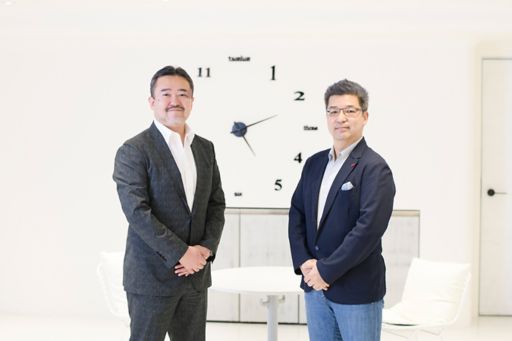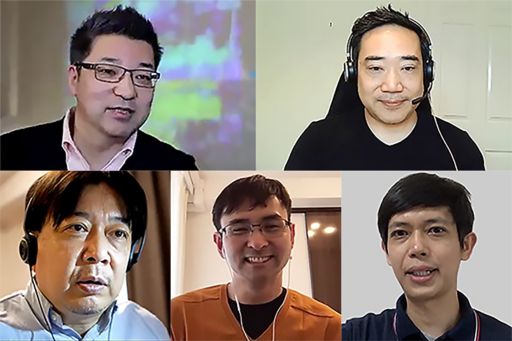Japanese society, which is now facing the risk of deindustrialization due to the shrinking working population, urgently needs to promote DX (Digital Transformation) in all aspects and resolve issues with the power of technology. In view of this situation, COVID-19 is seen by some as a strong driving force in promoting DX.
In fact, the use of technology, such as remote work and online meetings, is no longer “uncommon.” However, many people point out that such working situations “have not yet been accepted as natural enough to make people forget the old ways.”
How will digitalization and technology become “familiar” to society going forward? In this article, we will introduce the discussions conducted between Masayuki Chatani from KPMG Ignition Tokyo and Hiroyuki Morikawa, Professor at the Graduate School of Engineering, the University of Tokyo.
Evolving Universities and Students
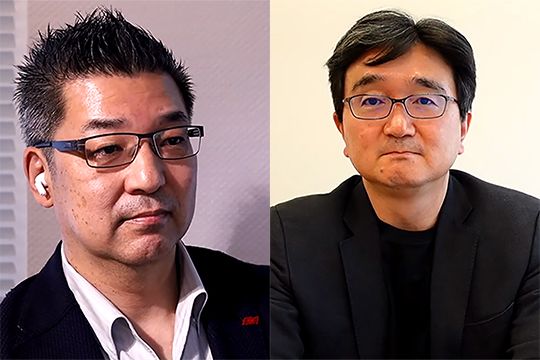
(Masayuki Chatani, Representative Director & CEO of KPMG Ignition Tokyo and CDO of KPMG Japan(left), Hiroyuki Morikawa, Professor, Graduate School of Engineering, the University of Tokyo (right)) *Professional affiliation and official position in the article are at the time of publication.
Chatani: Since I met you, Professor Morikawa, for the first time in 2019, you have invited me to study sessions, etc. Today, I would like to discuss with you themes such as what kind of impact technologies including IoT and AI are having on society and what has changed due to COVID-19, from an academic viewpoint.
First of all, I would like to ask you about the recent changes at universities, as it has been over 30 years since I graduated from the learning scene. As I am a graduate of the Department of Electrical Engineering, I am especially interested in how electrical engineering studies are changing. Has the teaching content changed a lot?
Morikawa: Basic subjects such as electric circuitry and electromagnetics have not changed. Naturally, however, we need to teach students about new areas as well, such as the media-related field including the Internet and image/voice processing and, recently, machine learning. As you can see, the core disciplines have not changed but new cutting-edge knowledge is being added.
Chatani: So, I guess today’s students need to study more than before.
Morikawa: So it seems. Furthermore, as the professors are very serious-minded, they try to cram all the knowledge they have into their lectures (laughter).
Chatani: That sounds like a lot of studies, if they want to cram in everything in a short period of four or six years.
Morikawa: That’s right. On the other hand, the students are also serious-minded and “students that graduate with borderline grades” like in the past are extremely rare nowadays. In my generation, it was common to graduate with borderline grades and we even thought that as long as we could graduate, it was ok. So, I feel that things have changed a lot.
Chatani: I see. Has there been any change in the places of employment of graduates?
Morikawa: Yes, indeed! The companies that the graduates of electrical and electronic information-related departments at The University of Tokyo joined the most last fiscal year were those providing cloud computing services. On the other hand, there has been a decline in the number of students who join established companies, which were thought to be the ideal companies for electric engineering students to join. Also, a certain number of students choose to work for startups and IT venture companies.
Chatani: Do these students start their careers as engineers or scientists?
Morikawa: Not necessarily, it seems. This could be seen in the past as well but there are motivated students who choose to join operations departments and aim to start their own business in the future.
Perspectives on Technology Are also Changing due to COVID-19
Chatani: The fact that students’ places of employment are changing makes me feel the reality that technology-based companies represented by GAFA will become the mainstream going forward.
People’s lifestyles have changed drastically due to COVID-19 and DX is being further promoted to take advantage of this change. In this sense, are there any changes in the academic world as well?
Morikawa: How things have changed due to COVID-19 is a very important perspective. I think that the biggest impact of COVID-19 is “the change in our senses and views on society and the world.”
The delivery robot is a good example. The commercialization of this robot is being accelerated by companies including the U.S.-based startup, Starship Technologies. Before the COVID-19 pandemic, I tended to think that self-driving was the main technology and this was just a toy and a simplified version of it.
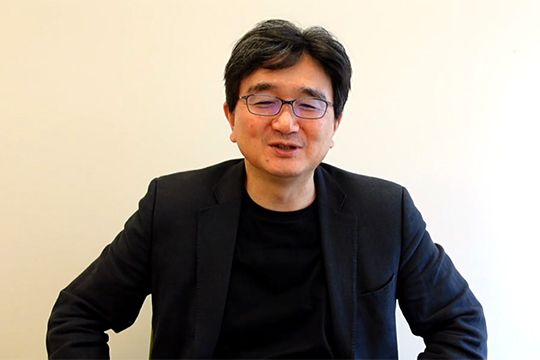
However, this viewpoint of mine has changed completely. Now, I have developed the feeling that self-driving is important but small autonomous mobile robots like the delivery robot actually may also be extremely important.
This also goes for “Zwift,” where we can take part in car races in a virtual space. Before, I did not see this positively and thought “what’s the use of racing a car in virtual space?” However, my feeling regarding this has also changed now.
The fact that “feelings change” like this, I think, will have a great impact in the world. Therefore, when historians 100 years from now look back on this age, they will consider “2020-2021 as a major turning point.” I feel that we may be stepping into such an age right now.
Chatani: That’s true. I can feel that there has been an increase in cases where we do not have to physically send or move things.
We are now having this discussion by using an online meeting function. We are indeed sending images to each other now and I have come to feel that, in a sense, we are sending “shared space” to each other. We are in an age where we can send space itself to each other, and not only is this technically possible, but there are more and more people who don’t find it strange, which is a big change.
Recently, it has become more and more common to hold not only meetings but also social gatherings online. It is now possible to foster a sense of sharing the same “place” by using the food delivery of lunch boxes and hors d'oeuvres so that we can have a pleasant chat while eating the same food.
It is also interesting that services that offset the disadvantages of being physically remote are being created. In this sense, there will come a day when 2020 through 2021 will be considered as a major transformation period.
Morikawa: You’re quite right. I feel that I have learned a lot from COVID-19.
There Have Been Cases Where Drastic Transformation Changed Society in the Past
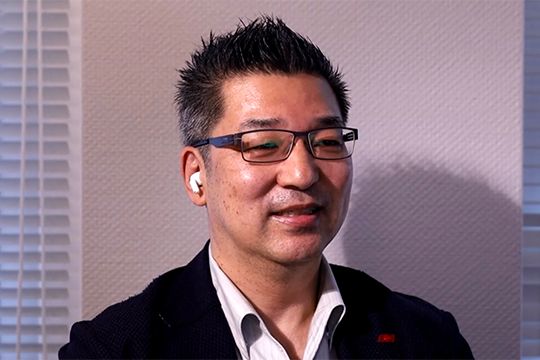
Morikawa: In terms of study, the spread of the Black Death 700 years ago is said to have led to the technological revolution of Gutenberg’s typographical printing technology, according to “The Great Mortality (transkation by Kuniko Nakano, published by Chuo Koron Shinsha)” by John Kelly.
To explain this in a little more detail, one third of the population in Europe died of the Black Death at the time and there was an increase in wages due to the decrease in the working population. This also had an impact on bookmaking tasks, which consisted of labor-intensive processes, and led to the issue of surging bookmaking costs.
John Kelly writes that this is how Gutenberg invented the typographical printing press. He points out that if there had been no Black Death, it would have been possible to make books at existing prices and there would not have been any need to invent a typographical printing press, which is very convincing.
At the same time, there is also the viewpoint that English might not have been used like now if there had been no Black Death. At the time of the plague, English was used by the working class, and the upper-class people who ran the country were basically using French. However, the social status of the working class increased in relative terms with the decline of the population due to the Black Death and, as a result, the English language is said to have become the main language.
If we apply this trend to the current age, I think that COVID-19 has triggered several “hops” that, combined with digital technology, will pave the way for the future .
Chatani: I see. I assume that whether remote working is possible or not is becoming one of the criteria when students, including the graduates of Professor Morikawa’s seminar, look for jobs. It can be considered that this is becoming some kind of symbol of modernized working styles or an index of whether a company is modernized.
Though there are many types of businesses where remote working is not possible, I feel that the “hop” that more and more students are emphasizing whether or not sufficient investment is being made in such facilities and infrastructure may encourage companies to make some kinds of changes.
There Are Innumerable Factors that Increase Uncertainty
Chatani: The fact that a company’s social contribution level and activities are becoming the criteria for students to choose their places of employment may be considered as one of the “hops.”
Morikawa: That’s true. It will become difficult to do business in the age to come. Various things are sure to change and it will not be easy to draw a roadmap in this situation. In such an age, management must consider how they can follow and respond to these changes. Already, I can almost hear people saying, “I don’t know what to do.”
Chatani: You’re right. I think that the approach will be to constantly explore and pivot as we move forward. In this sense, I think the most important thing is to be ready to change direction at any time without adopting a specific target.
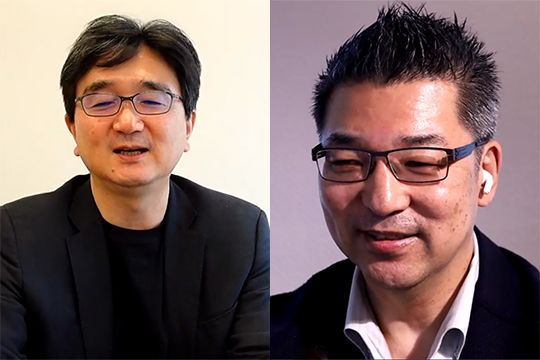
Morikawa: That’s very important. Whenever I talk about such topics, I try to clearly convey the fact that “no one knows about the future.” This means that though there are many different theories, they are the theories of those who advocated them and that “in fact, nobody knows anything.” I think that we should think in this way.
Profile of Interviewee
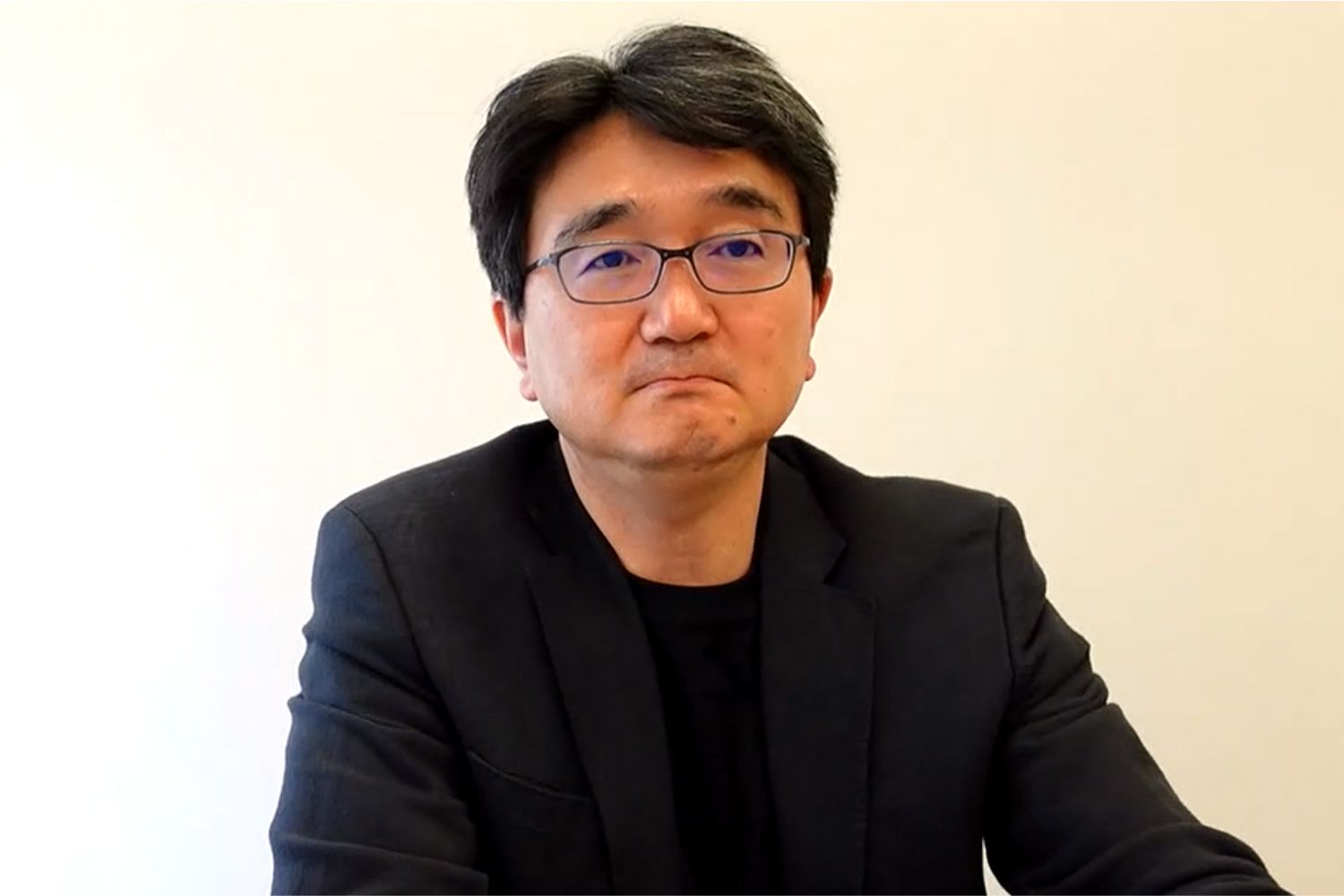
Hiroyuki Morikawa
Professor, Graduate School of Engineering, the University of Tokyo
Hiroyuki Morikawa received the B.E., M.E, and Dr. Eng. degrees in electrical engineering from the University of Tokyo, Japan, in 1987, 1989, and 1992, respectively. Since 1992, he has been in the University of Tokyo, where he iscurrently a professor. From 2002 to 2006, he was a group leader of the NICT Mobile Networking Group. His research interests are in the areas of Internet of Things / M2M / big data, wireless communications, sensor networks, digital transformation, and digital society design. He served as an OECD Committee on Digital Economy Policy (CDEP) vice chair, chairman of Beyond 5G New Business. Strategy Center, chairman of 5G-driven Social Design Consortium, chairman of Smart Resilience Network, chairman of Information and Communications Council, Ministry of Internal Affairs and
Communications. He also sits on numerous telecommunications advisory committees and frequently serves as a consultant to government and companies. He is the recipient of more than 100 honors and awards including the IEICE best paper award (thrice), the IPSJ best paper award, JSCICR best paper award, the Info-Communications Promotion Month
Council President Prize, the NTT DoCoMo Mobile Science Award, the Rinzaburo Shida Award, and the Radio Day Ministerial Commendation. His recent books are Data-driven Economy (2019) and 5G (2020).
Follow us on KPMG Ignition Tokyo LinkedIn for the latest news.
Connect with us
- Find office locations kpmg.findOfficeLocations
- kpmg.emailUs
- Social media @ KPMG kpmg.socialMedia



